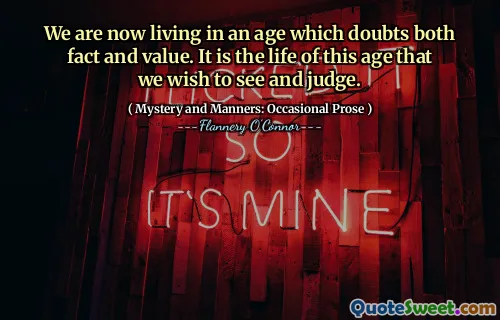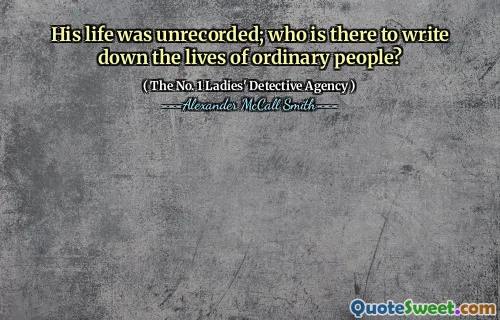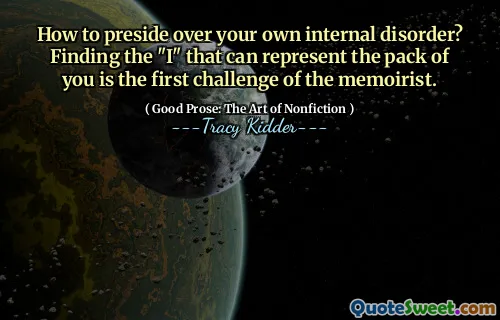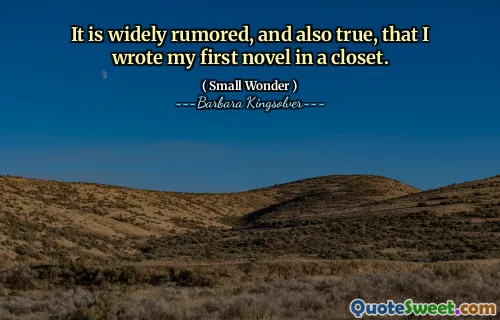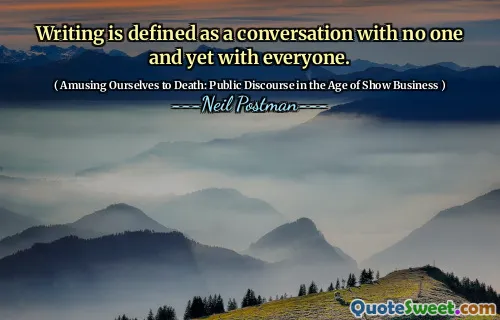
We are now living in an age which doubts both fact and value. It is the life of this age that we wish to see and judge.
This quote resonantly encapsulates a profound condition of modern society: a pervasive skepticism that challenges the very foundations of truth and morality. In an era characterized by rapid information dissemination, technological advancements, and a shifting cultural landscape, the lines between fact and fiction often blur. People increasingly question authoritative sources, media narratives, and even their own perceptions, leading to a general atmosphere of doubt. Moreover, this skepticism extends beyond factual accuracy to encompass values and moral standards—an era where relativism often replaces absolute truths. The repeated doubt fosters critical thinking but can also result in cynicism or nihilism if not tempered by constructive inquiry. The phrase 'the life of this age' implies a collective environment—a societal mood that shapes individual perceptions and judgments. It invites reflection on whether such doubt ultimately serves as a safeguard for truth or as a barrier that prevents meaningful understanding. Judging this age requires acknowledging the tension between skepticism and the human desire for certainty, meaning, and moral grounding. The quote challenges us to consider how we navigate this doubt, whether it promotes humility and deeper inquiry, or leads to disillusionment and paralysis. Recognizing this dynamic is crucial for cultivating a balanced approach, fostering dialogue rather than division, and seeking truth in an age marked by uncertainty.
